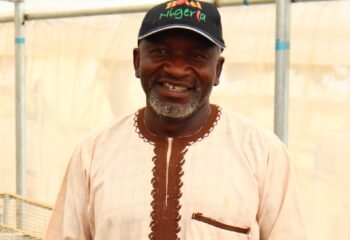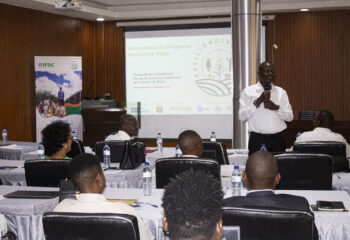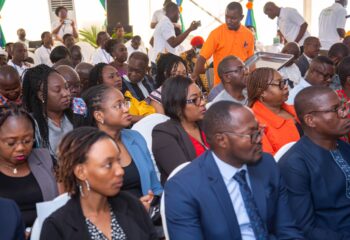Following the success of our Building Foundations for Female Entrepreneurs series, we asked others to share their stories. Shortly after, we received this piece from one of our colleagues in the field. The following example and others like it illuminate the various obstacles and accomplishments surrounding female entrepreneurs in developing countries. Feel free to share your stories with us on Twitter using the hashtag #3WomenFarmers.
Emilia is 54 years old and lives in Mozambique. She has homes in Chimoio City and Sussundenga (Manica Province). She commutes several times a week, juggling her various enterprises. She owns an agro-dealer shop in Sussundenga town, a farm in the interior of the district and a pick-up truck that she operates as a taxi. Emilia also has a warehouse, a large herd of cattle and an oil-press to produce cooking oil from sunflower and sesame. She owns 60 hectares of land. Just over half of this land is used to grow maize, sesame, fruits and vegetables. The rest is used to graze cattle. However, Emilia wasn’t always wealthy. As she explains:
“When my husband died, I thought I could never continue his business. Then in 2007, I participated in an AIMS [IFDC’s Agricultural Input Market Strengthening program] agro-dealer training program, and that gave me courage. I continued to learn thanks to more training on seeds, fertilizers, business management, finance and other areas. I became a better businessperson. I bought a car, and this year I finished building a warehouse.”
Emilia was one of the first women retailers in her district to participate in a voucher program (implemented by AIMS, the European Union and the Food and Agriculture of the United Nations). She took part in the 2009/10 and 2010/11 seasons, helping to promote the use of improved seeds and fertilizers. Emilia expanded her business in 2011/12 with a loan from the Banco Oportunidade de Mozambique. She credits her IFDC training for teaching her how to prepare a business plan and negotiate with a commercial bank. In 2013/14, Emilia again participated in the voucher program – but this time as a distributor, serving several smaller retailers across the district.
To increase profits from seed sales, Emilia decided to grow her own seed. In the 2013/14 season, she planted 5 hectares of seed maize. While the first harvests will be processed by the seed company Semoc, Emilia eventually plans to buy a processing machine so that she can do everything herself, including seed multiplication and processing, packaging and branding. Regarding her success and her future, Emilia left us with this:
“My farm is like an advertisement. My neighbors look at my fields, learn good agricultural practices, and buy inputs from me, so everyone benefits.”
AIMS is funded by the U.S. Agency for International Development.



